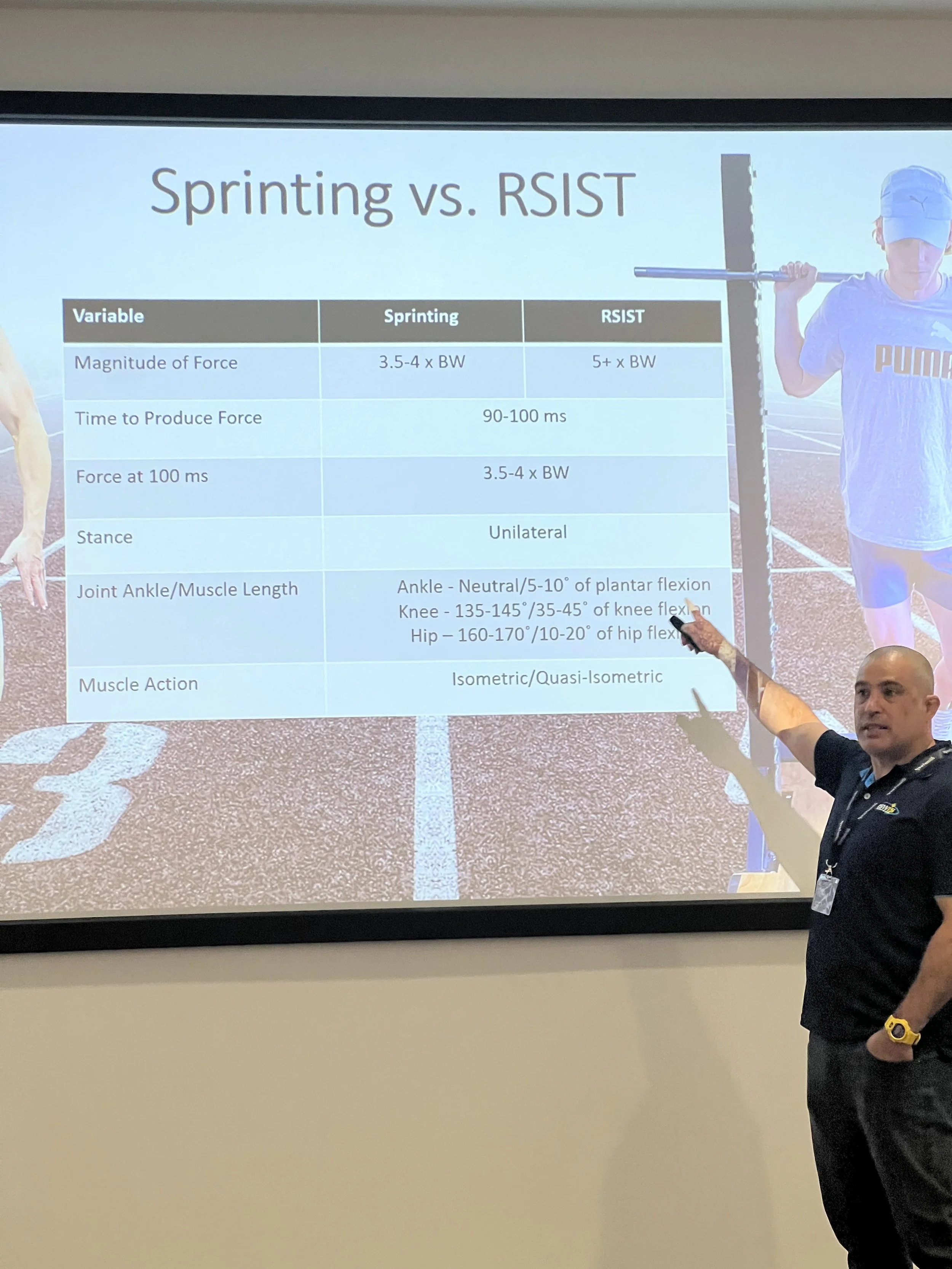Accelerating my Development! Reflections from the Sportsmith Speed Conference
This blog article was written by James Spring who was lucky enough to receive a free ticket to the Sportsmith Conference thanks to Rob Pacey and I collaborating! Here are James’ reflections in sprint form!
I was lucky enough to be recently selected to attend the Sportsmith Speed Conference at Leeds Beckett University as a sponsored coach thanks to Sportsmith and Collaborate Sports.
The event gathered some of the best S&C coaches in the industry who all shared elite knowledge and application in speed coaching. The event from start to finish was a truly unforgettable experience, surrounded by immensely experienced practitioners who were open to sharing their coaching philosophies and practices.
In my quest to give back to those who like me, if I wasn’t sponsored, couldn’t make it, please see my top 3 takeaways below which I hope give back to others in the industry in some way!
1) “Sometimes it’s better to not coach at all….
This takeaway from Matt Allen came from his wisdom on the effect our language can have on our athletes. Particularly, the session focused on internal and external cues, considering the most appropriate time to use each type.
For example, the exercise's speed and the athlete's training age can determine which coaching cue type is usually more effective to use. One comment that stuck with me was the idea that sometimes the best practice as a coach is to be silent and refrain from using cues in certain scenarios. If the bars moving fast enough, why say anything at all?
This seemed obscure to me at first before Matt clarified and suggested athletes can actually get worse sometimes from coaching, so simplicity can be key, especially with novice athletes.
It made me reflect on;
“are the most effective coaches the ones who get the outcomes they need, by saying the least?” I’ll be more ware of how I communicate moving forward now!
2) “If you aren’t assessing, you’re guessing!”
Unless you are Jonas Dodoo or Les Spellman, a novice coaching eye may struggle to identify every detail in a sprint effort.
Many of the speakers at the conference mentioned the importance of collecting objective data to avoid missing vital information. Ryan Grubbs spoke about an ACL rehab athlete he had worked with who displayed significant differences in step length and thigh range of motion on his injured leg compared to his non-injured leg. He mentioned this asymmetry may have not been observed if objective data was not collected which may have manifested as an injury risk if not dealt with. So I guess you could say why wouldn’t you collect data?
Across the event, I saw regular evidence of objective data being present in elite programs to help support decisions. The inclusion of screening physical capabilities like isometric strength (superbly presented by Alex Natera) and screening against normative kinematic and kinetic data in elite sprinting to inform training priorities was an eye-opener as a young coach
If we can’t measure it, how do we know if what we are using as a training method reflects the needs of the sport or activity?
“Seeing Alex present his rationale for using isometric methods to replicate 4x bodyweight on a single leg that occurs during sprinting made me sit up and think differently! I am now looking at many ways to monitor what I do and why with more objective information.”
3) “Gamespeed is a Philosophy, not an exercise!”
Many speakers were from team sports so naturally, an exciting topic to listen to was that of gamespeed.
“Before the conference, I grossly misunderstood the difference between linear sprinting and gamespeed.”
Pete Burridge gave a great example of the difference between linear sprinting and gamespeed. He showed a video of Usain Bolt and Jamie Carragher in a charity football match. Despite Bolt being the fastest man on the planet, Carragher was easily able to defend him during the match using the perceptual and experiential skills that made him so elite in his sport. This example was really informative and suggested as practitioners we need to not only train physical capacities and skills, but also the perceptual and decision-making components of gamespeed that are now obviously, so crucial to successful outcomes.
To wrap up, the event was a fantastic opportunity for coaching development, and I was able to learn so much in just a single weekend! The atmosphere created meant that it was also a great opportunity to expand my network moving forward. None of this would have been possible at this stage of my career without the support of Rob and Dan. I now realise the return on investment for opportunities like this, and will be doing what I can to get myself to as many future events moving possible as I start out on this career journey in performance sport!
Enrollment opens formally for the new group mentorships is now or a July 1st start.
To see what the programmes involve - click here
To register interest fill in this form and get to the front of the queue!
There are also sponsored places for students, and you can apply here!





